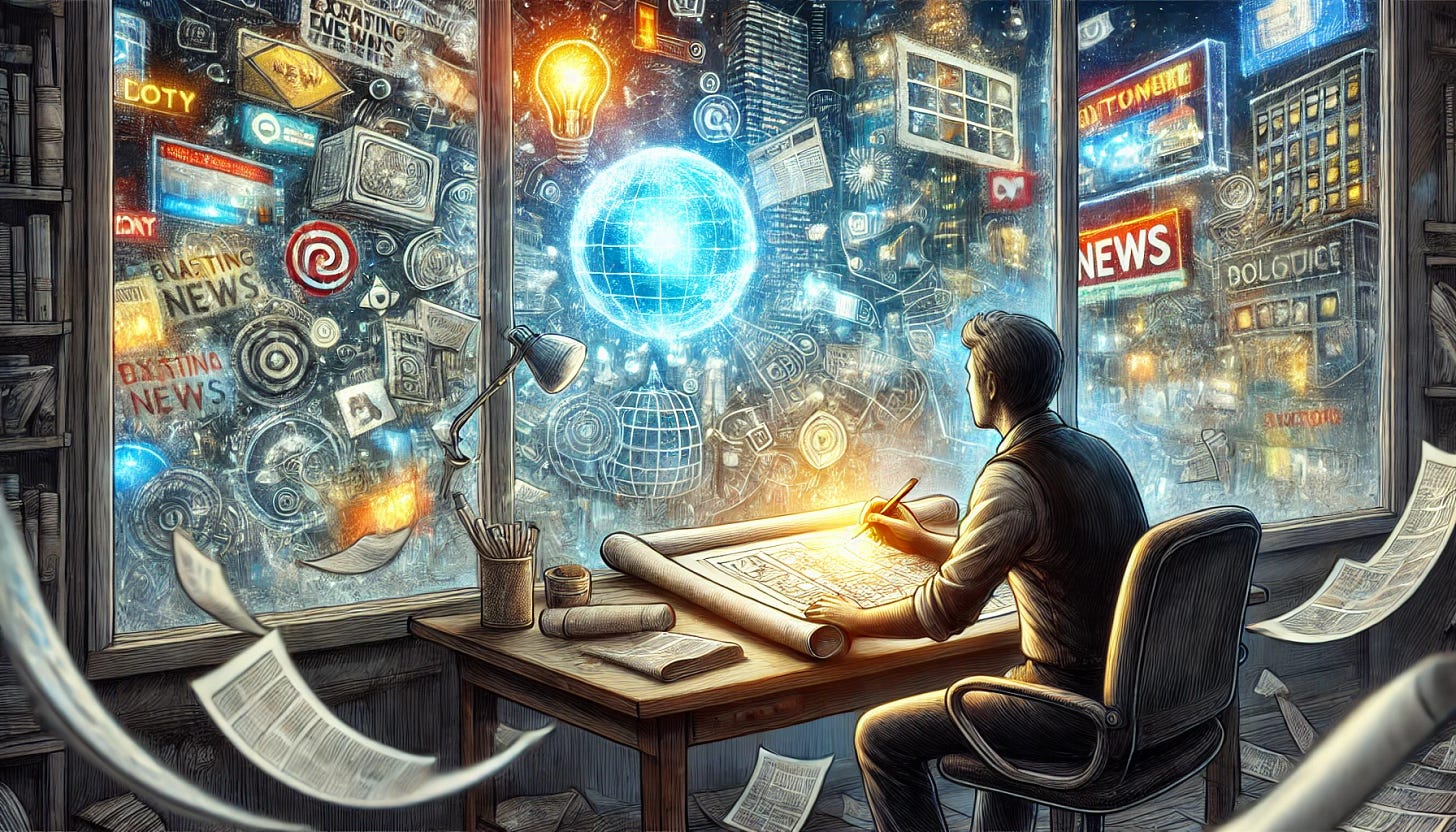Hijack Your Brain Before Someone Else Does
Controlling our attention controls our lives.
Every Sunday, Prompted delivers insights and prompts designed to help readers become a bit better each day.
Join 700+ ambitious and thoughtful journalers by subscribing below.
Your visions will become clear only when you can look into your own heart. Who looks outside, dreams; who looks inside, awakes.
Carl Jung
To understand everyday life, we must engage in the extremes of human experience.
Everyday life has so much stimulus that almost everything fades into a low-level buzz and anything that isn’t dramatized or sensationalized dissolves into the fabric of normalcy.
We don’t remember an average Wednesday from 10 years ago, but we’ll never forget a euphoric accomplishment or a traumatic childhood experience.
We don’t seek out bland experiences or entertainment. Rather, we’re drawn toward dramatic, chaotic, and unique experiences. These experiences shape who we are and how we live our lives.
Given the overwhelming influence of these experiences on our lives, we should do everything we can to control the extremes of human experience we expose ourselves to.
Exploitative Sensationalism
Unfortunately, many people and organizations have chosen to exploit this piece of human nature to serve their own goals.
Social media, politicians, podcasters, and everyone in between know the only way to get our attention is to be sensational. Sensationalized and dramatized content always captures our attention, for better or worse.
Each of these external entities has its reasons for trying to capture our attention, but none of them have our best interests in mind.
If we don’t take control, we’re at the mercy of what others sensationalize and dramatize. Manufactured clickbait designed to capture our attention and profit from it will become the core experiences that shape our lives and worldviews.
Regardless of who or where these dramatic experiences come from our brains are trained to pay attention when we’re in these heightened states of stimulation.
If we choose what we focus on and what experiences we immerse ourselves in, then we can direct our attention and energy toward our priorities, not the priorities of others.
Intentional Dramatization
Unless we deliberately identify and exaggerate what is most important to us those experiences won’t be the ones that shape our lives and the ones we remember forever.
Whether it’s an anniversary dinner with our spouse or a training session at the gym, we need to sensationalize it to signal that these are important peak experiences and direct our attention accordingly. When we intentionally dramatize what’s important to us we take control of our attention and differentiate meaningful experiences from the rest of everyday life.
In the same way others can sensationalize something to capture our attention and serve their purposes, we can sensationalize things in our own lives to capture our attention and serve our own priorities.
We can make a bet with our friends about going to the gym. We can choose a meaningful location to have an important conversation with a significant other. Whatever is important to us is worth overdoing to heighten our senses and immerse ourselves in the most meaningful moments of our lives.
In a world where only the most dramatic moments are remembered and sensationalism is increasingly being manufactured to co-opt our attention for profit, it’s more important than ever to control our attention and intentionally enhance experiences that are both meaningful and worthwhile.
Prompts
What are formative experiences (good and bad) that are etched into your memory and shaped the person you are today?
What external sources of dramatization and sensationalism capture your attention?
How can you intentionally dramatize certain experiences in your life to allocate your full attention and energy to what’s most important?
Deep Dive
Full Catastrophe Living by Jon Kabat-Zinn
Embracing the full human experience to face difficult situations with clarity.
Thanks for reading! I’ll see you next Sunday.
Kevin



